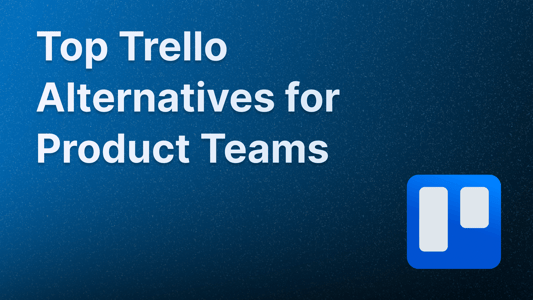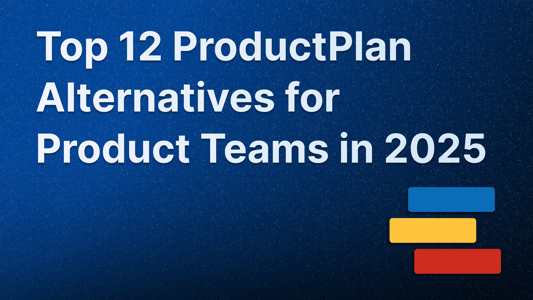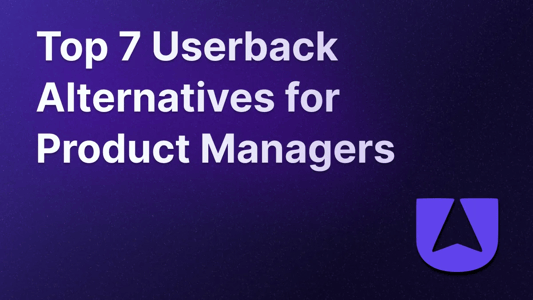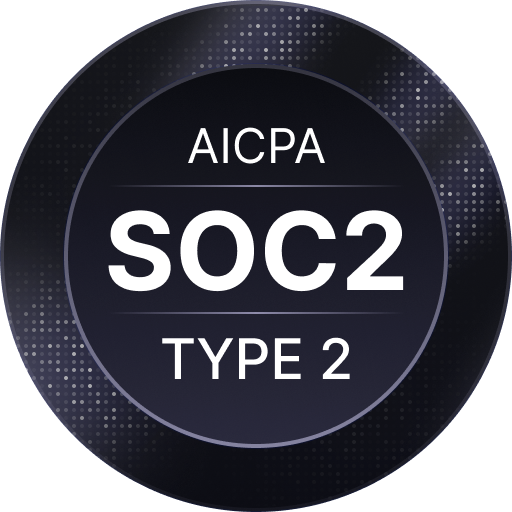Blog Comparisons15 Best Aha! Alternatives for Product Teams in 2026
15 Best Aha! Alternatives for Product Teams in 2026
Want a modern and reliable alternative to Aha? In this post, I've listed all of the top competitors that offer the best bang for your buck. I analyzed their pros, cons, and pricing, so you don't have to. Let's dive in!

Searching for an Aha! alternative that combines feedback and roadmaps to collect feedback effectively? You’ve come to the right spot.
Aha is a very expensive tool, especially for smaller companies. Users also complain about its clunky and aged interface. Fortunately, there are many more options.
So, in this post, I’ll break down all of the best affordable & modern Aha! alternatives that you should consider. Let’s dive in. 👇
In short - The best Aha! alternatives for product managers:
- ✨ Featurebase - Best modern and affordable all-in-one feedback tool
- ProdPad - Best for larger companies, has roadmapping and feedback collection
- Frill - Best for very simple feedback collection
- Nolt - Best for small teams looking for a feedback tool, limited features
- ProductPlan - Best for issue management & roadmaps, poor collection features
- Pendo - Best for complete customer experience, enterprises
- Jira Product Discovery - Best for a very smooth Jira integration experience
- Ducalis - Best for advanced feature prioritization, poor collection
- Dovetail - Best for qualitative feedback and market research
- GitHub Discussions - Best for open-source & internal projects, no prioritization
- Roadmunk - Best for roadmapping, no feedback collection
- Mopinion - Best for website feedback, good for e-commerce
- Canny - Best for simple feature voting & changelogs
- Rapidr - Best for feedback collection, good price for very large teams
- Trello - Best for simple idea and task management
Why even switch from Aha!?
Aha! is a sophisticated product management tool for enterprises. However, this also acts as a double-edged sword, making it unsuitable for small and medium-sized companies:
- Expensive
Aha!'s costs add up quickly. Starting at $147/month for 3 people just for feedback tools and climbing to $222 for advanced features. If you also want to use the roadmap module, then expect to pay $99/user/month or $297/month for 3 users. (G2 review) - Complex user interface
Aha! seems to confuse a lot of folks, especially if they're not developers or product managers. Imagine trying to figure out a tool that feels like it's stuck in the late '90s, and you'll get the picture. It's tough to use, making people give up and switch back to familiar tools like email or Slack to get things done. (G2 review) - Poor customer support & buggy integrations
There are many complaints about Aha's customer support being slow, unresponsive, and unhelpful. Dealing with such customer service can be a real headache. Plus, their integrations often break down and aren't fixed for months. (G2 review)

The 15 Best Aha! Alternatives for Product Teams in 2025
So, with that being said, I've listed some of the most popular alternatives to Aha. Each option is handpicked by comparing their price, features, and drawbacks to Aha! so you can pick the best one. Let's get into it!👇
1. Featurebase ✨

Featurebase (👋 that's us) is one of the best modern Aha! alternatives. It offers roadmaps, feedback boards, knowledge bases, and changelogs—basically everything Aha! offers and much more. And unlike Aha, Featurebase is not targeted at enterprises. We offer affordable pricing and a Free plan that allows unlimited feedback.
Featurebase's key features:
- Feedback boards and roadmaps
- In-app feedback widgets (see live demo)
- Sort feedback by monetary value
- AI feedback prioritization & summaries
- Surveys (like NPS, CSAT, etc.)
- Help Center
- Changelog for product updates
- Automated translations into 41+ languages
How much does Featurebase cost?
Featurebase offers a Free plan that allows you to collect unlimited feedback, create a help center, use roadmaps, and more. The paid plans start at just $29/user/month and you can try them out with a 10-day free trial. See pricing here →
Conclusion
Featurebase is one of the best Aha! alternatives. It has all the matching features and much more for an even lower price. We offer intuitive feedback boards, roadmaps, changelogs, in-app widgets, and much more.
The automated migration from Aha! will help you get set up in minutes and the onboarding is amazingly quick.
✨ Start collecting & managing feedback with Featurebase for free →

2. ProdPad

ProdPad is a comprehensive product management solution designed to streamline the product development process for teams of all sizes. It offers a centralized space for product managers to capture ideas, create detailed roadmaps, and manage their product portfolios efficiently.
ProdPad's key features:
- Roadmaps
- Feedback boards
- Product portfolios
- Analytics and reporting
- Prioritization frameworks
Pricing
ProdPad's pricing structure is based on the number of editors you add to your plan, making it quite flexible yet still expensive. Plans start at $90/month for essential features with one editor, increasing to $270/month for three editors and $900/month for ten editors.
For teams needing advanced modules, pricing can go up to $2,175/month for 15 editors. You can explore their pricing calculator on the ProdPad website.
Conclusion
ProdPad is particularly well-suited for larger teams that prioritize collaboration and need tools to organize and prioritize feedback effectively. However, it lacks changelogs and in-app popups, which could be a drawback for teams looking for end-to-end communication with users.
Discover more alternatives to ProdPad →
3. Frill

Frill is a clean and straightforward alternative to Aha, offering feedback boards, roadmaps, and changelogs in a simple interface. It’s an excellent choice for smaller teams that want simplicity without sacrificing the core functionality of collecting feedback. However, it lacks many useful idea management capabilities—there’s no user segmentation, sorting by customer revenue, or duplicate post-detection, which may hinder teams handling high volumes of feedback.
Frill's key features:
- Feedback boards & roadmaps
- Changelog for product updates
- Feedback-collecting widget & changelog popups
- Custom domain
Pricing
Frill offers four pricing plans, each with a 14-day free trial. The Startup plan costs $25/month and supports up to 50 active ideas at a time. The Business plan, at $49/month, removes this limit. For $149/month, the Growth plan includes unlimited feedback, white labeling, and privacy features. The Enterprise plan starts at $349/month, adding SOC2 compliance and a dedicated support manager for larger, security-conscious teams.
Conclusion
If you're after a simple, visually appealing Aha! alternative, Frill delivers on the basics. It’s affordable for smaller teams, though its higher-tier plans can feel pricey, considering the lack of other feedback management tools.
Check out the best Frill alternatives →
4. Nolt.io

Nolt.io is a lightweight alternative to Aha! that focuses on simplicity and ease of use. It’s a great option for small teams looking to collect and organize feedback with minimal setup. It lacks user segmentation, kanban roadmaps, changelogs, and prioritization frameworks—but if you were out for feedback collection anyway, this shouldn't bother you too much.
Nolt's key features:
- Feedback boards
- A roadmap
- Feedback collection widget
- Anonymous feedback features (posting, commenting, and voting)
- Password-protected boards
Pricing
Nolt offers three plans to fit different needs. The Essential plan costs $29/month and includes one board, a roadmap, and SSO. The Pro plan, at $69/month, adds up to five boards, API access, and task management integrations. For unlimited boards and enterprise-level features, pricing is custom and requires contacting sales. While the Essential plan is an affordable entry point, other tools in this list may provide more value for a similar price.
Conclusion
Nolt is a solid choice for smaller teams that prioritize simplicity and basic feedback collection. However, it lacks scalability and many advanced features, making it less ideal for teams with complex needs.
Check out the best Nolt alternatives →
5. ProductPlan

ProductPlan is an enterprise project management platform that offers flexible roadmap views and filters. It’s designed to help teams manage priorities and align stakeholders, making it well-suited for large organizations. However, ProductPlan falls short when it comes to feedback collection—it lacks features like feedback boards, upvoting, or changelogs.
ProductPlan's key features:
- Roadmaps
- Prioritization frameworks
- Feedback form (only on enterprise plan)
- Single Sign-On
Pricing
ProductPlan’s pricing is subscription-based with annual billing only. They have recently hidden their pricing, but the first plan starts from close to $49/editor/month. It accesses the bare minimum features like roadmaps and customizable views.
For example, with 5 editors on their first plan, you'd pay around $2,940/year (because of the annual billing only.)
Conclusion
ProductPlan is a solid choice for enterprise teams focused on advanced roadmaps and prioritization. However, it lacks intuitive feedback collection functions and is quite expensive.
For smaller startups, there are more affordable alternatives to ProductPlan →
6. Pendo

Pendo is an all-in-one enterprise solution designed to improve user experiences through a blend of product analytics, onboarding tools, and feedback features. It’s ideal for companies focused on retaining customers and understanding their behavior. With features like NPS surveys, session replays, and prioritization frameworks, Pendo offers insights that help product teams make data-driven decisions.
Pendo's key features:
- User onboarding
- NPS surveys
- Product analytics, like tracking in-app customer usage
- Product roadmaps
- Prioritization frameworks
- Session replays
Pricing
Pendo offers a free plan with basic features, such as NPS surveys and a roadmap, supporting up to 500 monthly users. The Starter plan is priced at $7,000/year, including 2,000 users, with no monthly billing option. For advanced plans like Growth and Portfolio, pricing is not disclosed, but customer reports suggest costs ranging from $12,000/year to $50,000/year (in 2021.)
Conclusion
Pendo is a feature-rich alternative to Aha! for enterprises needing analytics, onboarding, and feedback tools all in one. However, it’s its aged UI/UX, steep prices and learning curve make it less practical for smaller teams.
If you're a smaller startup, check out affordable alternatives to Pendo →
7. Jira Product Discovery

Jira Product Discovery is a feedback and prioritization tool part of the Atlassian suite. Jira is an excellent Aha alternative for teams already using other Atlassian tools, offering native integrations and collaboration with software development teams. However, it struggles with customer-facing feedback collection and lacks in-app widgets, which makes it unsuitable for external feedback collection.
Jira Product Discovery's key features:
- Internal feedback collection
- Feedback prioritization
- Impact vs effort matrix
- Product roadmaps
Pricing
Jira Product Discovery has straightforward pricing. The Free plan supports up to three creators and unlimited contributors with community support. The Standard plan costs $10/month per creator and includes additional features like custom project roles and data residency controls.
Conclusion
Jira Product Discovery is a great fit for teams within the Atlassian ecosystem, particularly for internal feedback and collaboration. However, its limitations in customer-facing feedback make it less ideal for teams that rely heavily on external input.
Check out the best Jira Product Discovery alternatives →
8. Ducalis

Ducalis is a feature-packed Aha! alternative focused on feedback prioritization with advanced frameworks and matrices to help PMs understand what to build next. However, it can quickly feel overwhelming due to its complex interface for some teams. Also, I noticed that the in-app widget doesn’t display roadmaps correctly.
Ducalis' key features:
- Public roadmaps (with feature voting)
- Changelog
- In-app widget
- Many prioritization frameworks
- User segmentation
- Automated email notifications
Pricing
Ducalis offers five pricing plans. The Free plan includes unlimited ideas, boards, and basic prioritization. The $10/month/seat Team plan is the most viable in terms of features. Business ($20/month/seat) doesn't offer anything relevant in addition & Pro lacks some important features like voting on behalf and custom domain.
Conclusion
Ducalis is a great tool for product managers who need advanced prioritization capabilities. While it has decent pricing, its steep learning curve and less intuitive interface may be a hurdle for some teams.
See the top Ducalis alternatives →
9. Dovetail

Dovetail is an enterprise-grade customer insights platform designed to help teams analyze feedback and uncover patterns through tagging and clustering. It’s particularly useful for collecting and interpreting long-form content like customer interviews or sales call transcripts.
Dovetail's key features:
- Analyze data with tagging, views, thematic clustering, and more
- Transcription of user interviews and calls
- Tags for sorting ideas and feedback by category
Pricing
Dovetail offers three plans with a 14-day free trial. They have a free plan, and paid ones start at $29/user/month. The third, Enterprise plan, comes with a custom quote.
Conclusion
Dovetail is a powerful solution for teams focused on deep customer insights and qualitative feedback. However, it’s not ideal for product feedback or feature prioritization, as it lacks roadmaps, changelogs, and voting boards.
Regarding pricing, it's expensive so if you're a smaller startup, check out these best affordable Dovetail alternatives →
10. GitHub Discussions

GitHub Discussions is a collaborative platform designed for communities around open-source or internal projects. It serves as a feedback board where users can post ideas, ask questions, and engage in discussions. While it’s community-focused and integrates seamlessly with other GitHub tools, it lacks essential feedback management features like prioritization or integrations with non-GitHub tools. This makes it less suitable for teams looking for a structured feedback workflow.
GitHub Discussions' key features:
- Feedback boards
- Commenting
- Sorting feedback
- Email updates
Pricing
GitHub Discussions is included with GitHub Free, GitHub Team, and GitHub Enterprise accounts, making it accessible for both public and private repositories.
Conclusion
GitHub Discussions is an affordable option for teams already using GitHub, but its lack of prioritization features and limited integrations make it less effective as a standalone feedback tool. While free, it may ultimately cost more in time and inefficiency compared to dedicated feedback tools.
Check out the best GitHub Discussions alternatives →
11. Roadmunk

Roadmunk is a feature-rich roadmap tool for product managers to create, manage, and prioritize roadmaps effectively. With features like feedback boards and prioritization frameworks, it’s great for internal team alignment and decision-making. However, its feedback collection capabilities are limited, lacking a public feedback board and changelog, which can make user engagement more challenging.
Roadmunk's key features:
- Product roadmaps
- Feedback boards
- Prioritization frameworks
- Integrations with Jira, Trello, Monday, and more
- Single Sign-On
Pricing
Roadmunk offers four tiers, starting at $19/editor/month for basic features. Paid plans scale up to $99/editor/month for advanced features like SSO and two-way integrations. Enterprise plans are custom-priced. Note that all plans require annual billing, and pricing is per editor.
You can pay the same price for much more complete tools offering more seats and even get many of these features for free.
Conclusion
Roadmunk is an excellent choice for teams prioritizing customizable roadmaps and internal feedback management. However, its feedback collection is very limited, and the pricing structure may be steep compared to more versatile alternatives.
Check out the best Roadmunk alternatives →
12. Mopinion

Mopinion is a website feedback tool for e-commerce and outsourced marketing agencies, offering forms for gathering user input from websites or apps. It may not be the best option for product feedback or feature requests as it lacks feedback boards, roadmaps, and changelogs. However, it does the job for larger e-commerce companies.
Mopinion's key features:
- Feedback forms and satisfaction surveys
- Website and in-app feedback widgets
- Email forms
Pricing
Mopinion has two plans that both include a 14-day free trial:
- Standard, starting at $329/month
- Enterprise, which is custom-priced
Conclusion
Mopinion is a solid tool for collecting website feedback, especially for e-commerce teams. However, it’s not ideal for product teams needing feature prioritization or changelogs, and its high pricing, starting from $329/month, only makes sense for large enterprises.
Discover more affordable Mopinion alternatives →
13. Canny.io

Canny.io is a popular feedback tool offering roadmaps, feedback boards, and changelogs. Their pricing may not fit smaller teams, as the free plan is restricted to 100 monthly posts and the most useful features are locked behind the $399/month plan. Additionally, while its design is modern, it lacks some advanced features like prioritization matrices and changelog popups.
Canny's key features:
- Feedback boards, roadmaps, and changelog
- Prioritization frameworks
- Feedback widget
- Automated email notifications
- Custom domain
Pricing
Canny's pricing starts with a free plan, allowing for 100 monthly posts. The first paid plan costs $99/month for basic features, while the Growth plan is $399/month, unlocking the most useful features. Enterprise pricing is custom.
Conclusion
Canny is a good Aha! alternative for enterprises needing advanced moderation and feedback management. As most of the useful features are on the $399/month plan, it's not the best choice for smaller teams.
Check out more affordable Canny alternatives →
14. Rapidr

Rapidr is a feedback tool that offers modern voting boards, roadmaps, and changelogs. It’s designed to help teams collect, organize, and act on user feedback efficiently. While its user interface is clean and modern, it lacks essential features like prioritization frameworks and bulk editing, which some of you may be looking for.
Rapidr's key features:
- Feedback boards, roadmap, and changelog
- Custom domain
- Email notifications
- User segmentation
- Single Sign-On
Pricing
Rapidr offers three tiers: Startup at $49/month, Business at $199/month, and custom-priced Enterprise plans.
Conclusion
Rapidr is a modern Aha! alternative with great design and enterprise features. However, it lacks some key functionalities like prioritization frameworks, making it less ideal for teams that need deeper analytics or customization.
Explore the best Rapidr alternatives →
15. Trello

Trello is a well-known task management tool that uses simple Kanban boards to help teams organize their workflows. While it’s primarily designed for project management, many teams use it for basic feedback management. Trello offers several views like timeline and calendar but lacks advanced feedback tools such as prioritization frameworks or changelogs, limiting its usefulness for product development.
Trello's key features:
- Kanban boards (Roadmaps)
- Timeline
- Calendar
Pricing
Trello has a free plan and paid plans starting at $6/user/month. Premium plans unlock advanced views and features but can become expensive for larger teams due to per-user pricing.
The total cost depends on how many users you have in your team. For example, five users on their Premium plan will cost $62.5 a month.
Conclusion
Trello is a straightforward Aha! alternative for task and issue tracking. While it’s affordable for small teams, its feedback collection capabilities, and we'd suggest using Trello for feedback only if you already have all other projects there. Otherwise, you're better off with a dedicated tool.
Discover the best Trello alternatives →
What is Aha! product management software?

Aha! is a comprehensive product management software used for creating and sharing visual product roadmaps, managing feature requests, tracking progress, and collaborating with teams. It integrates customer feedback into the product development process, helping teams align on their product vision and strategy.
Aha! is widely used by product managers, product owners, and product marketers. It also supports integration with various other tools, making it excellent for working together with different product development teams.
How much does Aha! cost?

Aha!'s prices can be tricky to figure out, so keep a calculator close.
Their feedback tool, Aha! Ideas, starts at $49 a month for each person. But, you have to pay for at least 3 people, making it $147 a month to start.
If you want extra features, like voting on behalf of others or in-app widgets, you'll need the Aha! Ideas Advanced plan. This costs $74 per person each month. Since you need at least 3 people, the starting price jumps to $222 a month.
That was just the cost of the feedback tool. If you also want roadmapping features, it gets pricier. You'll pay an extra $74/mo per person for Aha! Roadmaps Premium. For the big business version, it's $124/mo per person.
Read everything you need to know about Aha!'s pricing in detail here →
Key features of Aha:
Aha! offers many core features that most feedback tools do. This includes:
- Ideas - let users submit feedback and upvote others' posts
- Roadmaps - display upcoming features and manage ideas on a roadmap view
- Knowledge - create an internal or external product documentation
- Whiteboards - Create and collaborate on concepts and diagrams with your team
- Integrations - connect Aha! with popular tools like GitHub, Jira, and Zendesk
Conclusion
The bottom line is that Aha! is an alright tool for some, but the pricing and confusing UX make it difficult to recommend for most. Most core features available for free on other tools, such as in-app widgets and voting on behalf of users, are locked behind their highest pricing tiers.
Featurebase is one of the best Aha! alternatives. It has all the matching features and much more for an even lower price. Besides feedback boards, it offers changelogs, roadmaps, a knowledge base, and in-app widgets - all with a beautiful and intuitive design.
Featurebase comes with a Free Plan that allows unlimited posts. You can automatically migrate over from Aha! in minutes, so there's no downside to trying it. 👇
✨ Start collecting & prioritizing product feedback with Featuerbase for free →

FAQ
What type of software is Aha?
Aha! is a product management platform that helps teams plan, prioritize, and track their product development processes. It offers features like roadmaps, feedback management, and prioritization tools.
What are the best Aha! competitors?
Some top Aha! competitors include Featurebase, Canny, Frill, Roadmunk, and Pendo. Each offers unique features tailored to product management, feedback collection, or roadmapping needs.
How is Aha different from Jira?
Aha! focuses on strategic product planning and roadmapping, while Jira is primarily a project management tool designed for tracking tasks and development workflows. Many teams use Aha! for planning and Jira for execution.
Is Aha good for product management?
Yes, Aha! is highly regarded for its product management features like roadmaps, prioritization frameworks, and feedback tools. However, its cost and complexity might not suit every team, especially smaller ones.
More reading:
- Aha! vs Featurebase
- Aha pricing review
- Aha! vs Canny comparison
- Aha! vs Productboard comparison
- Aha! vs ProductPlan comparison
- Aha! vs ProdPad comparison




